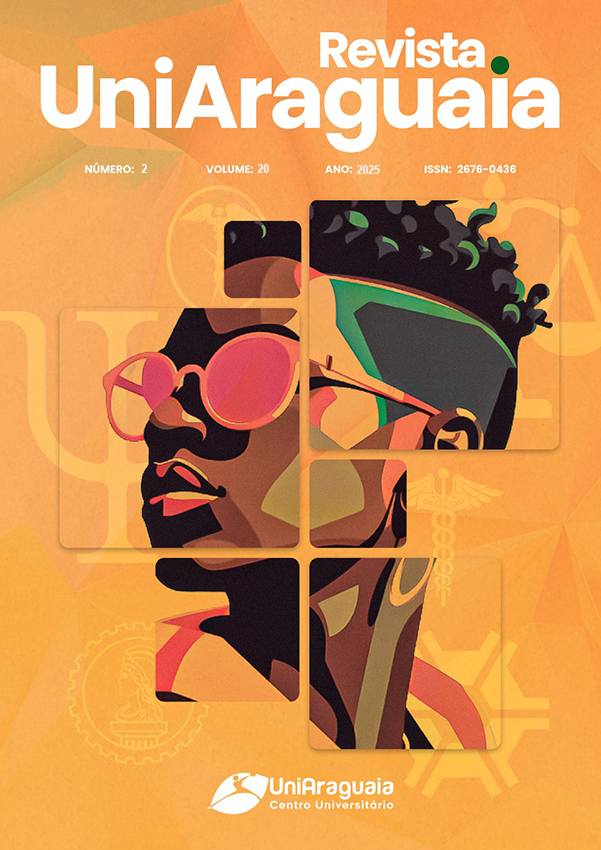Prerogatives on Research Designs: Narrative Perspectives in the Literature Review
Keywords:
Methodology, Narration, Qualitative ResearchAbstract
Research designs are methodological aids that can adopt quantitative, qualitative or mixed approaches. In this context, there are narrative literature reviews which can be relevant for identifying gaps and consensus in knowledge. This study aimed to discuss the peculiarities of research designs with a focus on narrative literature reviews. It consisted of a descriptive, cross-sectional and qualitative study, conducted through a narrative literature review. Materials were retrieved from search platforms using the descriptors “research methodology”, “narrative research” and “qualitative approach”. The findings in the literature showed that narrative designs are valuable strategies in the quest to understand phenomena in their complexity and context, allowing the analysis of meanings and subjective constructions by articulating temporal and relational elements. However, the importance of argumentative clarity must be stressed in order to guarantee the scientific usefulness of the inferences produced. The conclusion is that the choice of methodological design must be based on the research problem and, in this sense, the narrative review is useful for deepening interdisciplinary discussions, valuing the researcher's perspective. However, the importance of recognizing the validity of the different models according to their purposes is reinforced.
References
BAUMEISTER, Roy F. Writing a literature review. The portable mentor: Expert guide to a successful career in psychology, p. 119-132, 2013. https://doi.org/10.1007/978-1-4614-3994-3_8
BRASIL. Constituição da República Federativa do Brasil de 1988. Diário Oficial da União: seção 1, Brasília, DF, 5 out. 1988.
BRASIL. Ministério da Saúde. Serviço de produção de evidências para o apoio à tomada de decisão: portfólio de produtos. Brasília: Ministério da Saúde, 2019.
BRASIL. Ministério da Saúde. Plano Nacional de Saúde 2024–2027. Brasília: Ministério da Saúde, 2024.
BRIET, Suzanne. O que é a documentação? Brasília: Briquet de Lemos, 2016.
LORAINE, Busetto; WICK, Wolfgang; CHRISTOPH, Gumbinger. How to use and assess qualitative research methods. Neurological Research and practice, v. 2, n. 1, 2020. https://doi.org/10.1186/s42466-020-00059-z
CAMPOS, Luiz Fernando de Lara. Métodos e técnicas de pesquisa em psicologia. 6. ed. Campinas, SP: Alínea, 2019.
CARDOSO, Márcia Regina Gonçalves; DE OLIVEIRA, Guilherme Saramago; GHELLI, Kelma Gomes Mendonça. Análise de conteúdo: uma metodologia de pesquisa qualitativa. Cadernos da FUCAMP, v. 20, n. 43, 2021.
CASARIN, Sidnéia Tessmer et al. Tipos de revisão de literatura: considerações das editoras do Journal of Nursing and Health/Types of literature review: considerations of the editors of the Journal of Nursing and Health. Journal of nursing and health, v. 10, n. 5, 2020.
CRESWELL, John W. Uma estrutura para projeto. Projeto de pesquisa: métodos qualitativo, quantitativo e misto. Porto Alegre: Artmed, p. 21-42, 2007.
CRESWELL, John W. Investigação Qualitativa e Projeto de Pesquisa-: Escolhendo entre Cinco Abordagens. Penso Editora, 2014.
FERRARI, Rossella. Writing narrative style literature reviews. Medical writing, v. 24, n. 4, p. 230-235, 2015. https://doi.org/10.1179/2047480615z.000000000329
HOPIA, Hanna; LATVALA, Eila; LIIMATAINEN, Leena. Reviewing the methodology of an integrative review. Scandinavian journal of caring sciences, v. 30, n. 4, p. 662-669, 2016. https://doi.org/10.1111/scs.12327
OGASSAVARA, Dante et al. Concepções e interlocuções das revisões de literatura narrativa: contribuições e aplicabilidade. Ensino & Pesquisa, v. 21, n. 3, p. 8-21, 2023. https://doi.org/10.33871/23594381.2023.21.3.7646
OLIVEIRA, Ana Cristina Barbosa; DOS SANTOS, Carlos Alberto Batista; FLORÊNCIO, Roberto Remígio. Métodos e técnicas de pesquisa em educação. 2019.
OVERCASH, Janine A. Narrative research: a review of methodology and relevance to clinical practice. Critical reviews in oncology/hematology, v. 48, n. 2, p. 179-184, 2003. https://doi.org/10.1016/j.critrevonc.2003.04.006
PHILIPPI JUNIOR, Arlindo; SILVA NETO, Antônio J. Interdisciplinaridade em ciência, tecnologia e inovação. In: Interdisciplinaridade em ciência, tecnologia e inovação. 2011.
ROCHA, Leonor Paniago; DE FREITAS REIS, Marlene Barbosa. A pesquisa narrativa em educação especial. Revista Ibero-Americana de Estudos em Educação, p. 884-899, 2020. https://doi.org/10.21723/riaee.v15iesp.1.13500
ROTHER, Edna Terezinha. Revisión sistemática X Revisión narrativa. Acta paulista de enfermagem, v. 20, p. v-vi, 2007.
SCHUGURENSKY, Daniel. The forms of informal learning: Towards a conceptualization of the field. 2000.
SOUSA, Angélica Silva; DE OLIVEIRA, Guilherme Saramago; ALVES, Laís Hilário. A pesquisa bibliográfica: princípios e fundamentos. Cadernos da FUCAMP, v. 20, n. 43, 2021.
TURATO, Egberto Ribeiro. Métodos qualitativos e quantitativos na área da saúde: definições, diferenças e seus objetos de pesquisa. Revista de Saúde pública, v. 39, p. 507-514, 2005.
VILELA, Elaine Gomes; BORREGO, Cristhiane Lopes; DE AZEVEDO, Adriana Barroso. Pesquisa Narrativa: uma proposta metodológica a partir da experiência. Revista de Estudos Aplicados em Educação, v. 6, n. 12, 2021. https://doi.org/10.13037/rea-e.vol6n12.8129
YIN, Robert K. Pesquisa qualitativa do início ao fim. Penso Editora, 2016.
Downloads
Published
Issue
Section
License

This work is licensed under a Creative Commons Attribution 4.0 International License.
The copyright of the published articles will be transferred to the Uniaaraguaia Magazine, allowing its subsequent reproduction as transcription and with due citation of source. In the event of acceptance and before the publication of the article, the plaintiff (s) shall write a statement formally transferring copyright to the magazine.
The author may also print and distribute copies of his article, provided that he mentions that the rights belong to the Uniaaraguaia Magazine.
Author rights include the right to reproduce in full or partly by any means, distribute this article, including figures and photographs.
By submitting originals to the Uniaaraguaia magazine, the author or authors express agreement with the following terms:
a) Authors maintain copyright and grant Uniaraguaia magazine the right of first publication, with the work simultaneously licensed under the Creative Commons Attribution license that allows the sharing of work with recognition of the authorship and initial publication in this magazine.
b) Authors are authorized to assume additional contracts separately, for non-expiration distribution of the work version published in this magazine (eg publish in institutional repository or as book chapter), with recognition of authorship and initial publication in this journal.
c) Authors are allowed and are encouraged to publish and distribute their work online (eg in institutional repositories or on their personal page) to any point before or during the editorial process, as this can generate productive changes as well as increase the impact and citation of published work.

